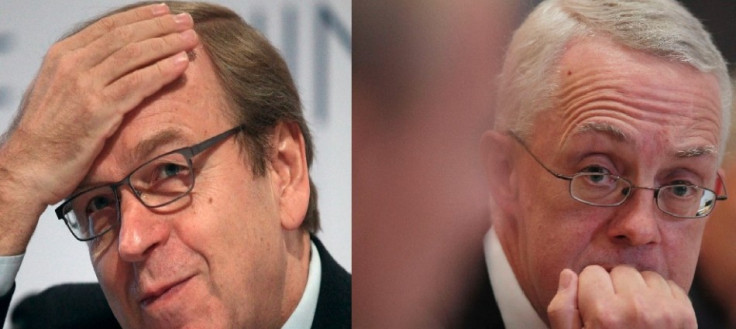UK Plans to Ring-Fence Retail Banking Face Setback

Sir John Vickers' recommendations to ring fence retail operations from investment banking may face a number of amendments, after the Parliamentary Commission on Banking Standards (PCBS) questioned whether such a restructure was possible in practice when it grilled the architect of a mirror proposal for the whole of Europe.
In the session, several members of the PCBS, chaired by Andrew Tyrie, expressed concern over the Finnish central bank governor Erkki Liikanen's review - which centres around similar proposals made by Vickers - that suggested a majority of universal banks trading activities should hive off non-direct client related banking operations into a subsidiary holding company.
Former chancellor of the exchequer Lord Nigel Lawson expressed the strongest opposition against Liikanen's ring-fencing plan, which could be rolled out across the European Union (EU), should it be formally adopted by the European Commission (EC).
Lawson said the ideas was "not really relevant to this country" as Britain has not had a culture of "universal banking."
Universal banking is common in some European countries, such as Germany and Switzerland, and allows banks to provide commercial and investment services within the same organisational structure.
Commercial and investment banks are separated in the UK, however, and ring-fencing initiatives look to protect retail deposits from the money flows linked to investment banking activities.
He also hit back at Liikanen's analysis of the financial crisis and subsequently how both banks and the "shadow banking" industry had escaped regulatory oversight.
"That is manifestly incorrect. With respect, that is totally the reverse of the truth. The banks which were ostensibly heavily regulated [failed]," said Lawson.
The latest session is the third in a series of parliamentary hearings that is aimed at assessing EU banking reforms and what impact it will have on the UK.
On 17 October, former US Federal Reserve chairman Paul Volcker told the PCBS that the concept of ring-fencing retail operations away from investment banking was "full of holes that were likely to get bigger over time" and that "it would be difficult to sustain."
The day before Volcker's hearing, the House of Lords questioned Mark Harding, Barclays - Group General Counsel and Richard Kibble, Group Director (Strategy and Corporate Finance) at Royal Bank of Scotland over their assessments of the banking reform concepts, such as ring-fencing as per the Liikanen report or the Vickers' Report, and whether any elements will have a damaging impact on the UK banking industry.
Kibble said that "aspect of ring-fencing is perfectly workable" but both he and Harding said that costs would be naturally passed onto the consumer for implementing such a restructure as "there will be a removal of cross-subsidy benefits and therefore this will trickle down to the retail and wholesale market."
Harding added that "I think there is an obvious caveat that theory and practice may converge. We do need checks and balances in order for the two being compatible. In principle, the two [Liikinen and Vickers] can work together, although there will be pressures. For example, there may be situations that it would be in the interest of some members in adopting rules that are giving advantages to those regions and will facilitate business within that zone, [at the detriment] of regions outside that zone."
At the end of July, Chairman of the EU Sub Committee for Economic and Financial Affairs, Lord Harrison wrote a letter to the Committee, voicing serious concerns that the Government have not fully appreciated the consequences of their decision not to take part in the fundamental elements of a banking union.
"Whilst the 17 euro area member states are making decisions in smoke-free rooms, the UK could be left outside fuming. Although the UK remains outside the euro area, it needs to ensure that it remains at the very centre of the EU and its single market," said Lord Harrison.
"There is a risk that the UK could lose its ability to maintain influence on the EU and other Member States. The Minister is asked what the Government are doing to make sure that the UK is not marginalised from debate through the shifting of discussions outside the main EU channels to forums where the UK has no voice," he added.
© Copyright IBTimes 2025. All rights reserved.






















